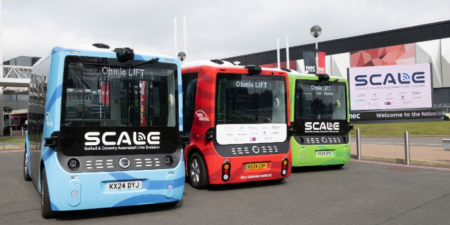Researchers from the Lero SFI Research Center at the National University of Ireland at Galway (NUI Galway) have signed an autonomous vehicles research and development partnership with Valeo, the major French automotive equipment supplier.
The research will focus on helping autonomous vehicles (AVs) to better navigate in complex, real-world conditions using advanced sensor signal processing technology. Funding for the program comes from Science Foundation Ireland (SFI) and Valeo. A team of up to 30 Lero NUI Galway and Valeo engineers based in Tuam, Ireland, will work on the project. In support of the program, NUI Galway is hiring 10 PhD and two post-doctoral researchers. Valeo, which employs 1,100 people in Tuam, operates the largest R&D team in the west of Ireland with over 400 engineers.
The project team at Lero, the SFI-funded Irish Software Research Center, will be headed by Dr Martin Glavin and Dr Edward Jones of the College of Engineering and Informatics at NUI Galway. Dr Ciarán Hughes, senior expert in computer vision, leads the Valeo research team.
As part of the research program a semi-autonomous car will be equipped to navigate everyday hazards on the NUI Galway campus, although the test vehicle will be under human control at all times. Critical use cases will be examined at Valeo’s secured test facility in Tuam.
“This collaboration brings an 18-year relationship with NUI Galway to a new level, a step that wouldn’t have been possible without the support of Lero,” explained Dr Hughes from Valeo. “At a broad level, the project will look at how to extract the most information possible from automotive sensors, which is critical for highly complex autonomous driving systems.”
Dr Jones from NUI Galway, said, “In many ways perception of the current state of autonomous vehicle technology is more advanced than reality. While autonomous vehicles are currently operating successfully in several locations, particularly in the USA, this is often under road landscape and weather conditions very different to the more complex city and rural environments that would commonly be found in locations such as Ireland or elsewhere in Europe.”
Dr Glavin from NUI Galway, added, “Working with the Valeo R&D team, our research aims to develop sensor technology that can see further and adapt to difficult driving conditions such as fog, heavy rain and darkness. It will also be designed to better deal with real life road situations, such as cyclists, pedestrians or animals wandering on to the road.”




